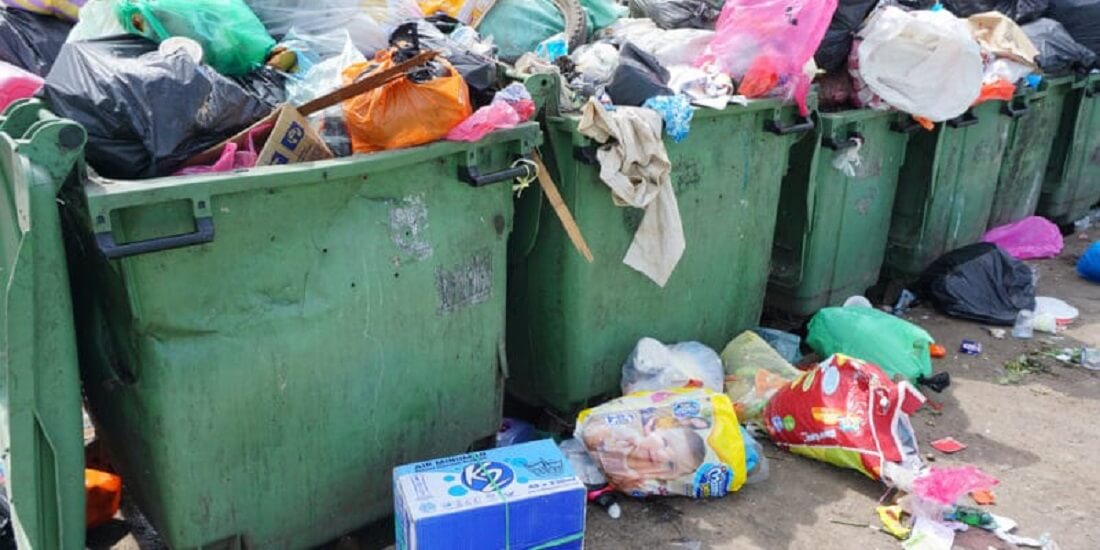Mountains of refuse are fast becoming a common sight in many Nigerian cities, posing silent but deadly threats to public health. From toxic fumes to contaminated water, the consequences of unchecked waste disposal are seeping into the lives of residents. Behind every open dumpsite lies a growing risk of disease, pollution, and environmental decay that demands urgent attention.
Speaking to THE WHISTLER, Mrs. Nne Ngwobia, a registered nurse based in Uturu, Abia State, stated that “refuse dumps lead to severe environmental pollution of the air, water, and soil. She said they negatively impact human health, causing various diseases such as respiratory illnesses and irritation of the eyes and skin due to air pollution. She added that contamination of water sources can lead to cholera and diarrhoea, while diseases spread by vectors such as mosquitoes, flies, and rats can result in malaria, typhoid fever, and Lassa fever”.
She noted that these problems could be prevented by developing efficient waste collection mechanisms to stop littering and illegal dumping, promoting awareness campaigns, and educating the public on the health consequences of refuse dumps and the importance of proper waste disposal systems.
Nne emphasized that a comprehensive waste management hierarchy, robust waste infrastructure, and strong regulatory enforcement should be established to eliminate the proliferation of refuse dumps.
Also speaking to THE WHISTLER, public health expert Adaeze Ngwakwe, based in Ibadan said that “refuse dumps remain a critical yet persistent issue in global solid waste management, posing severe and ongoing threats to public health. She explained that contemporary research continues to reveal how unengineered waste sites endanger human health, particularly in marginalized communities where waste management systems are deficient”.
Adaeze stated that modern analytical techniques have reinforced the link between dumpsites and human exposure to hazardous chemicals. She emphasized that higher concentrations of volatile organic compounds and particulate matter in the air near major dumpsites have led to increased respiratory problems, including asthma and chronic obstructive pulmonary disease, among residents living nearby.
Advertisement
She further explained that recent research has identified dumps as reservoirs for infectious diseases, linking proximity to open dumps with higher incidences of diarrheal diseases in children under five. According to her, this is due to the proliferation of flies and cockroaches, which act as mechanical vectors for enteric pathogens that contaminate food and water sources in nearby homes.
Adaeze also stated that the “psychosocial burden of living near dumpsites is increasingly recognized, noting that residents close to large dumpsites report significantly higher levels of stress, anxiety, and odor annoyance compared to those in unaffected areas”.
She emphasized the need for proper infrastructure investments, such as transitioning from open dumps to sanitary landfills with protective liners and leachate systems, implementing extended producer responsibility laws, enforcing zoning laws to keep dumps away from communities, and banning problematic materials like single-use plastics.
“Campaigns on waste segregation and the health impacts of improper disposal should be launched, while innovative solutions like smart bins for efficient collection, bioremediation for detoxifying existing sites, and advanced waste-to-energy technologies should be utilized. Adaeze further called for the integration of waste pickers into the waste management system, providing them with safety equipment and fair wages”.
Adaeze concluded by saying that “refuse dumps are a major source of multifaceted health risks from respiratory and carcinogenic to infectious and mental health conditions making their replacement with engineered sanitary landfills a critical public health priority.”
Advertisement
She emphasized that preventing these health impacts requires a collective shift towards a circular economy that minimizes waste and maximizes reuse. According to her, this can be achieved through the comprehensive framework of the Integrated Waste Management Act, which encourages coordinated action across all sectors to ensure cleaner air, safer water, and healthier communities.
Nigeria’s growing refuse crisis is more than an eyesore, it’s a silent assault on public health. From toxic air to tainted water, every open dump tells a story of neglect that demands action, not sympathy. Health experts are clear that without stronger waste laws, smarter infrastructure, and a cultural shift toward responsible disposal, the nation risks turning its cities into breeding grounds for disease.

